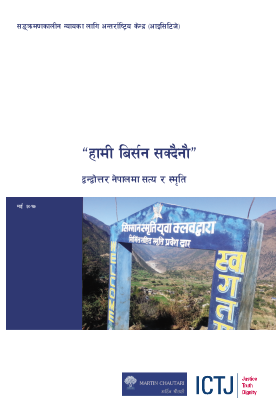
In the context of an ongoing truth-seeking process in Nepal, the manner in which victims conceptualize truth and relate it to justice is instructive. This is particularly true as the country's two truth commissions, the Truth and Reconciliation Commission (TRC) and the Commission of Investigation on Enforced Disappeared Persons (CIEDP), advance in their efforts to provide victims with truth about past events. Victims' conceptualizations about the value and meaning of truth illustrate the importance of why "it is not enough to know what has been done, but also to know what it means to various actors in society. In trying to understand different perceptions of truth in various districts of Nepal, it is clear that previous and present historical and political contexts have informed the way in which the past is understood by various actors, at all levels.
Interviews of victims of human rights violations and other serious crimes committed during the armed conflict conducted from 2014-2015 for this study have revealed important information about the views of this fundamental constituency regarding truth-seeking efforts in Nepal. Victims clearly value the identification of perpetrators and explanations for the causes that led to violations, the circumstances and facts of violations, and the fate and whereabouts of the forcibly disappeared. For some, especially victims of sexual violence, truth is more complicated, and effort will be needed to help victims to overcome societal stigma and use existing opportunities to break down harmful misconceptions about their experiences.